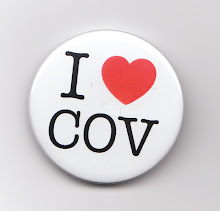
The Brixton Pound is a new local currency that can only be exchanged for goods in the Brixton area. It is a complimentary currency which means that its aim is not to rival the Pound Sterling, but to work with it in an attempt to increase trade for independent retailers in the area. When I first heard about the new currency I assumed that you would be able to get more for your money by using the new currency, but this is not the case.
The creators of the Brixton pound explain "If you’re a local business, the B£ benefits you by:Promoting your business through the B£ leaflets and website, helping you to find local suppliers, or to supply other local businesses and adding to positive perceptions of Brixton’s strong community and diverse economy.
If you’re a local shopper, the B£ benefits you by bringing you special offers exclusive to B£ users, ensuring that more of the money you spend in Brixton stays here, helping local businesses thrive in the face of recession and fierce competition from chain stores and working to reduce Brixton’s carbon footprint by supplying more of its needs locally"
Essentially the Brixton Pound is more an awareness campaign for shoppers to support the area's local businesses and independent retailers through a difficult period, with the money being more a local gift voucher than a real currency. But the new currency could create a sense of unity between Brixton residents and see people taking more pride in their local area.
The Brixton Pound is the first use of a local currency in in an urban area in the modern day. However experiments with local currencies have taken place before. BBC News reports ""A local economy is like a leaky bucket. Wealth is generated then spent in chain stores and businesses. It disappears leaving an impoverished local economy," explains Ben Brangwyn, part of the team behind the Totnes Pound, launched in south Devon in 2007.

"Local money prevents that from happening and keeps the money bouncing around the bucket, building wealth and prosperity." Currently, 6,000 Totnes pounds are in circulation from an estimated local economy of £60m.
It is, stresses Mr Brangwyn, a radical experiment, still in its very early stages, but he can see a day when England has 2,000 local currencies. Other towns joining the experiment, started by environmental group Transition Network, are Lewes in East Sussex and Stroud in Gloucestershire."
The idea does feel like something that would be more likely to work in small close knit communities than in Brixton however this does not mean it will not work. Whilst many are skeptical of the new currency, it is optional. No one can force you to take your change in the B£, whilst the people who wish to support their local economy can do so, ensuring that their money stays in the area.
A limitation of the idea would be trying to introduce a local currency into severely deprived areas, where many people cannot afford to support independent retailers and will travel outside of town to find cheaper goods. Being able to choose where you spend your money can be considered a luxury. Another problem is that there is no financial incentive, which may not motivate people in certain areas. The idea could be a problem if executed on a global scale because every small town would be trading in different currencies and purchasing could become confusing if you lived on the borders of two different areas.
Whilst the idea has been labelled a brain child of the middle classes, if the people of Brixton are really passionate about supporting local trade then the idea will work. If it is to work over time in a mixed demographic area like Brixton then it could prove that the idea in theory could work right across the world.
Official promo video for the Brixton Pound
The Brixton Pound discussed on the BBC Politics Show

No comments:
Post a Comment